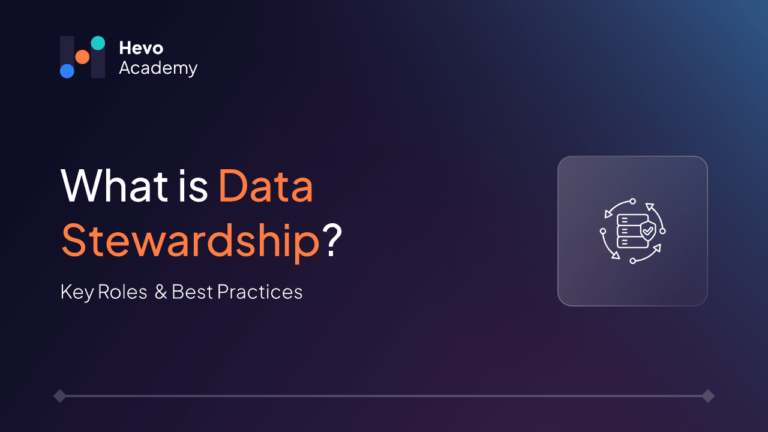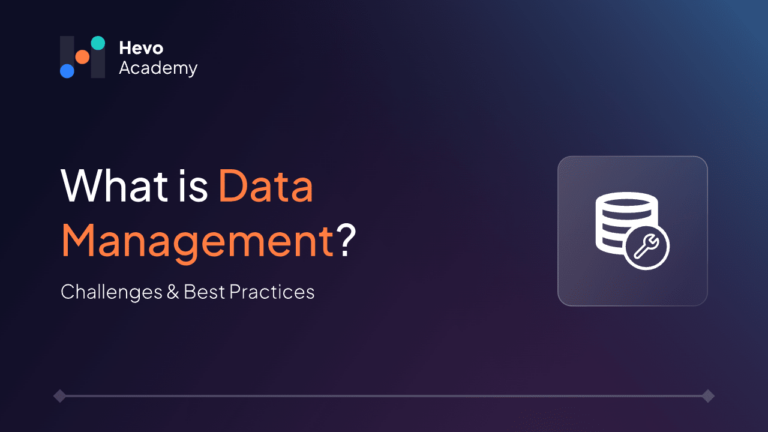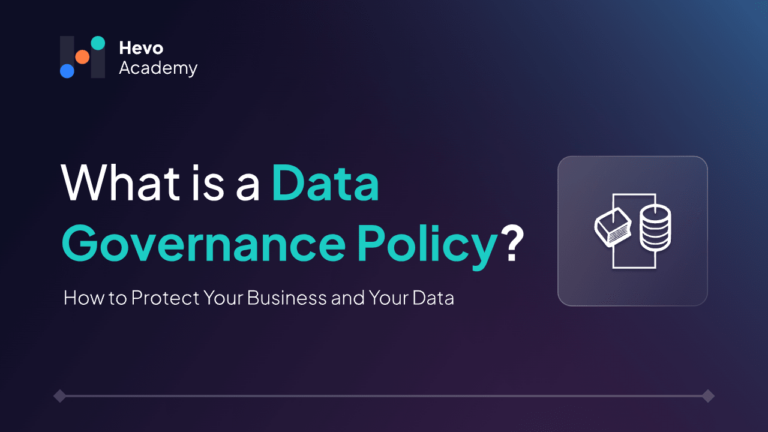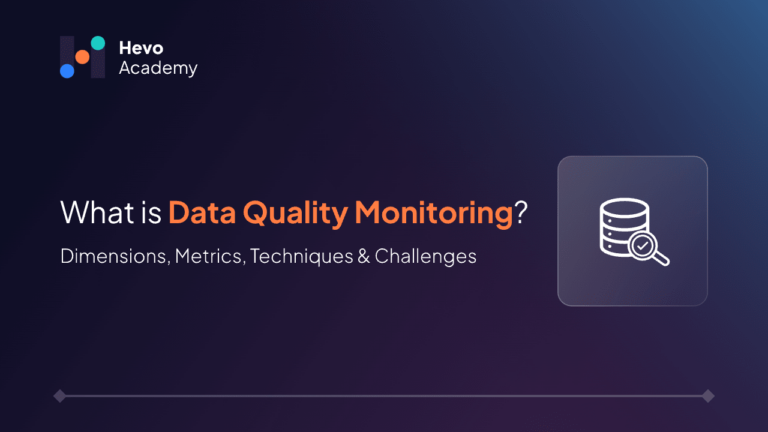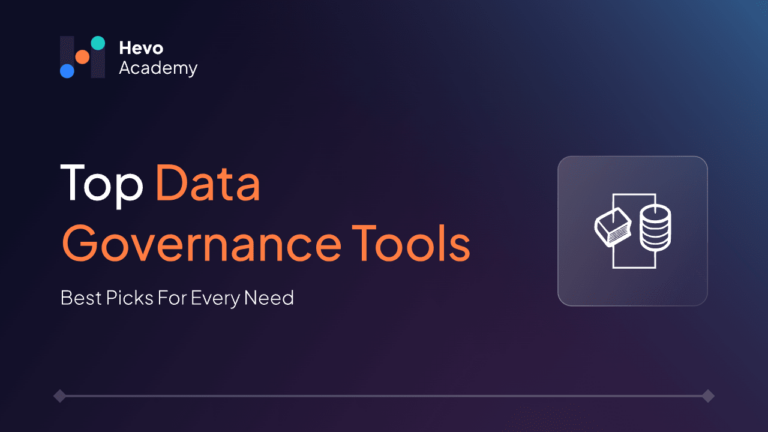Today organizations create and rely on enormous volumes of data in order to make decisions, provide services, and promote innovation. Managing data quality, accessibility, security, and compliance has become critical. Data stewardship is a technique that guarantees data is appropriately handled and used throughout its existence. This article discusses data stewardship, its types, importance, benefits, roles, differences between data analysts and data stewards, data stewardship relationship with data governance, common challenges and its future.
Table of Contents
What is Data Stewardship?
Data stewardship is the management of data within an organization. A data steward is responsible for maintaining data consistency, quality and compliance with privacy laws and regulations. The role of data stewardship covers the entire lifecycle of data, from creation and storage to sharding and archiving. It treats data as a strategic asset and makes sure that data is accurate and clean. A data steward resolves any kind of data quality issues and ensures that data governance policies are implemented effectively.
Types of Data Stewards
In an organization, there are four categories (or dimensions of duty) of data stewards, depending on the set of responsibilities allocated to each individual:
1. Data object data steward
They are accountable for managing reference data and properties of a single corporate data entity.
For example: Product data steward oversees data related to products, including descriptions, pricings, categories, etc.
2. Business data steward
They are in charge of managing vital data, both reference and transactional, developed or used by a single business function. The data steward may also act as a liaison between the organization’s data users and technical teams, bridging the gap between business needs and technical specifications. They may also help to educate people in the organization about effective data management practices.
For example: Sales data stewards are responsible for managing data related to transactions such as sales orders, pricing, invoices and ensure that it is clean and aligned with business strategies.
3. Process data steward
They are responsible for maintaining data across a single business process.
For example: Supply chain data steward oversees data related to inventory management, procurement, logistics, and ensures that it is accurate.
4. System data steward
They are in charge of managing data for at least one IT system.
For example: CRM data steward manages data within customer relationship management(CRM) systems like Salesforce.
Importance of Data Stewardship
There is increasing pressure on organizations to guarantee data safety, security, consistency, and quality as the value of data as an asset continues to grow dramatically. As a result, the demand for data stewards is increasing across industries. A corporation can have terrible commercial outcomes if its data is not properly kept. Employees need permission from the data steward to log in and access data.
Data stewardship is a position of trust in which both technical teams and business professionals in an organization must have complete confidence in their data steward. They serve as a bridge between data specialists and data users. This role is important in industries where data compliance is critical, such as finance, healthcare and government.
What are the Roles and Responsibilities of a Data Steward?
Some of the roles and responsibilities of a data steward are mentioned below:
- Ensure that data is classified as limited, regulated, or public in terms of distribution.
- Create data quality guidelines and audit data on a regular basis to ensure it is fit for purpose.
- Ensure that there are documented and published procedures for giving system permission and rights in the business sector.
- Create procedures and standards to ensure that access rules and access groups are established and maintained.
- Participate in the creation of data policies, such as data retention, privacy, data use, and laws.
- Evaluate sharing of information requests and decide whether to approve or reject them.
- Participate in working groups as required and attend stewardship group meetings.
- Evaluate reports and visualizations to ensure they are working as planned and serving the needs of the business, ensuring that the data is perceived as trustworthy.
Essential Qualifications and Skills for Data Stewards
Data stewards should have the following skills:
- Strong analytical and problem-solving skills.
- Efficient task prioritization.
- Solid understanding of data privacy regulations including GDPR, CCPA, and HIPAA.
- Proficiency in data quality management, integration, and security techniques and technologies.
- Experience with data management technologies (such as SAP and Oracle).
- Capability to develop and execute data standards and metadata management.
- Strong attention to detail and the capacity to detect data inconsistencies or errors.
- Experience with data management, from creation to preservation.
- Strong communication skills required to explain data regulations and standards to non-technical consumers.
- Experience with database management systems (e.g., SQL, NoSQL).
What are the benefits of data stewardship?
Some of the key benefits of data stewardship are as follows:
- Data stewardship guarantees the integrity and quality of the data, resulting in trustworthy decision-making.
- It increases operational effectiveness through the provision of clear and easily accessible data.
- It manages data in accordance with privacy rules, supporting regulatory compliance.
- It breaks down data silos to improve departmental communication and promotes a culture of data-driven decision-making by increasing confidence in data.
- It ensures that data is reliable and consistent, which maximizes corporate performance and improves the capacity to analyze data and produce insightful business information.
- It makes it easier to integrate data across platforms and systems by reducing inefficiencies and redundancies through standardization.
Uses of a Data Stewardship Program
Following are some of the use case scenarios of data stewardship:
- These are some typical applications for data stewardship programs in the medical field. Given the volume of personal data that healthcare organizations handle, data stewardship is particularly important in this industry. A hospital system manages electronic health records (EHRs) across several departments by putting in place a data stewardship program. Data stewards are in charge of making sure that patient data—including diagnoses, treatment plans, and medical histories—is securely kept, updated, and standardized across all platforms.
- Another application is in the banking and finance industry. Data stewards ensure that all the financial data is consistent, accurate and it complies with rules like GDPR. They ensure the transactional data is reliable for fraud detection and risk assessments.
- Data stewardship is also used in the energy sector. It ensures that the data collected from grid systems, customer accounts, machines and smart meters is reliable and accurate. It supports compliance and billing accuracy in energy distribution.
Data Steward vs Data Analyst
Some of the key differences between a data steward and a data analyst are mentioned in the following table:
| Data Steward | Data Analyst |
| Data steward’s duty is to oversee the entire lifecycle of data from creation, storage, usage to deletion. | Data analysts focus on analyzing existing data for decision-making, forecasting, and reporting. |
| They own stewardship and governance of data. | They work with datasets but do not typically own data governance responsibilities. |
| They ensure that the data is clean, complete, accurate and accessible for analysis and use. | They analyze and interpret data to generate actionable insights and trends. |
| They act as a ‘data guardian’ and ensure data is managed as a valuable and secure resource. | They act as a data interpreter and help organizations understand trends. |
Data Stewardship vs Data Governance: How Do They Relate?
Data governance and data stewardship are kind of related. Here are some key points of their relationship:
| Data Governance | Data Stewardship |
| Data governance defines what should be done with data | Data stewardship defines how data management is executed day to day. |
| Data governance refers to the overall framework, policies and standards that guide how data is managed, used and protected within an organization | On the other hand, data stewardship focuses on a broader scope of data governance. It is focused on hands-on management of data to ensure it is accurate, reliable, accessible and secure. |
| It establishes policies, standards and guidelines for data privacy and usage. It focuses on compliance, data security and quality. | Data stewards implement data governance policies daily. |
| Data governance defines rules | Stewardship ensures the rules are followed that are established by governance. |
| Data governance creates framework. | Data stewardship operates on the framework that is provided by data governance. |
Common Challenges to Data Stewardship
Some of the common challenges to data stewardship are as follows:
- Sometimes, employees resist new data management practices or tools that are introduced by data stewards.
- If there is any kind of ambiguity around stewardship roles or who owns specific data, then it can lead to gaps in data governance.
- Data stewardship becomes inefficient and data management becomes less effective if neither the right tools or platforms are used, nor the staff is trained.
- When there is a high increase in data volume, variety and complexity, stewards face challenges in maintaining effective governance and consistent data quality.
- Data privacy laws and regulations are ever-changing. Keeping up with these regulations and ensuring compliance can sometimes be difficult.
- The implementation of data security to save large amounts of sensitive data from any unauthorized access or breach can be challenging for data stewards.
The Future of Data Stewardship and Its Role in Emerging Technologies
Data stewards will be crucial to guaranteeing the ethical use and management of data as businesses embrace AI, machine learning, and big data technologies more and more. They will be in charge of data protection, CCPA and GDPR compliance, and data accuracy in complicated situations. Human oversight will continue to be essential to address ethical and regulatory challenges, even though automation solutions can help with duties like data cleaning and monitoring. Data stewards will need to work together with other data team members to control data lineage for transparency and make sure AI models are trained on clean, objective data. They will play a crucial part in the responsible use of data in new technologies.
Conclusion
As the value of data as an asset grows tremendously, organizations face rising demand to maintain data safety, security, consistency, and quality. Data stewards bring power and accountability to the table and take responsibility for organizational data.
Data stewardship is critical for ensuring that an organization’s data is accurate, safe, and accessible, allowing for informed decision-making. Data stewards support company operations and analytics by ensuring data quality, integrity, and consistency. Data stewards also promote continual development in data management methods, ensuring that data remains relevant to changing business demands and future technology.
As organizations strive to ensure robust data stewardship and effective data management practices, leveraging the right tools can significantly simplify and enhance this process. Platforms like Hevo empower teams to maintain data accuracy, consistency, and accessibility effortlessly. Schedule a personalized demo to see how Hevo can help streamline your organization’s data management strategies today.
FAQs
1. What is another word for data stewardship?
Another word for data stewardship could be ‘data custodianship’ or ‘data governance.’ These both ensure quality and compliance of data and include data management practices.
2. What are the risks of data stewardship?
The risks of data stewardship include inadequate data security resulting in data breaches and non-compliance with regulations. Along with that there are several challenges related to data silos as data silos can make it difficult to integrate data across departments or systems that lead to inefficiencies.
3. What is the overall objective of a data steward?
Data stewards help departments to use data effectively to support business operations and decisions. They also ensure that the data is accurate, consistent, trustworthy and the data privacy laws and regulations are being followed.

